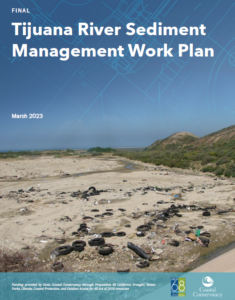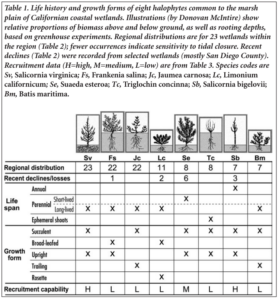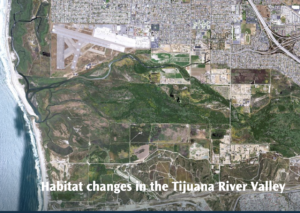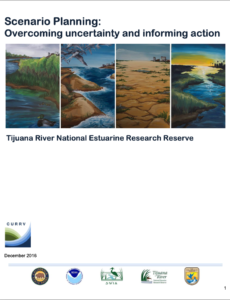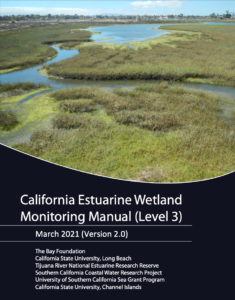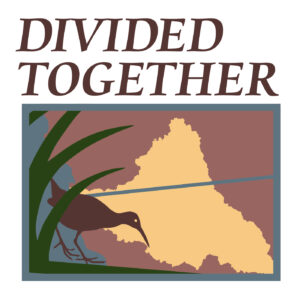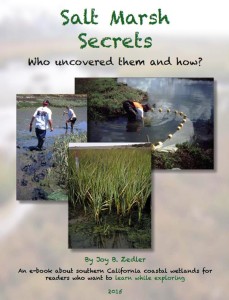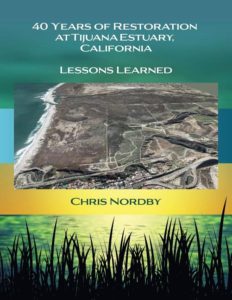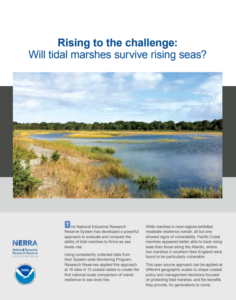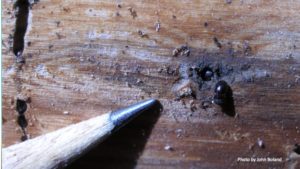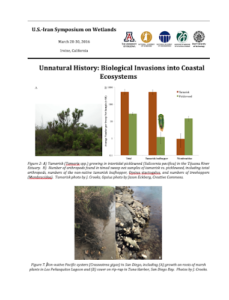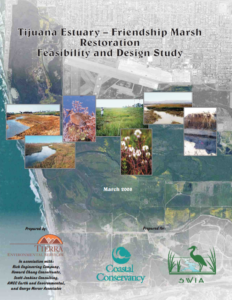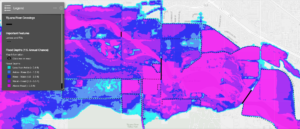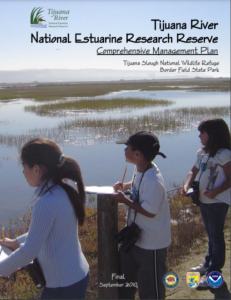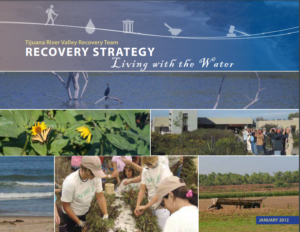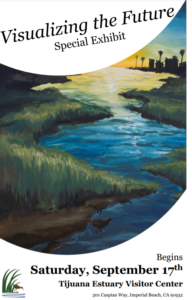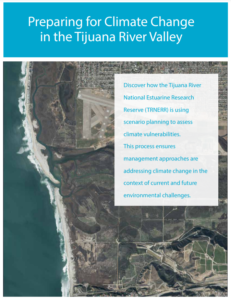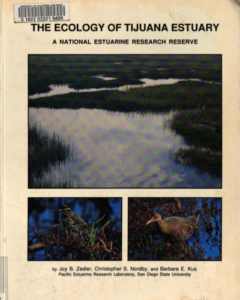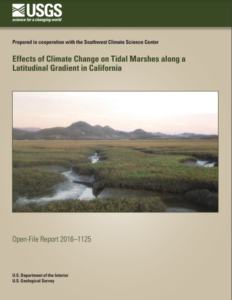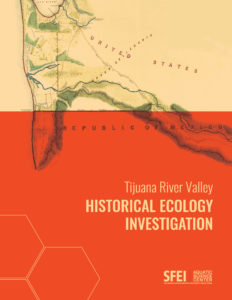The 2023 Sediment Management Work Plan, prepared for the City of Imperial Beach, is intended to serve as a guide for agencies and organizations responsible for sediment management activities in the Tijuana River Valley (Valley). The recommendations presented in this Work Plan are intended to support successful implementation of sediment management projects throughout the Valley […]
Read MorePublications coming out of PERL, led by Dr. Joy Zedler.
Read MoreStoryMap documenting impact and potential recovery of riparian forest associated with the invasion of shot hole borer beetle, expansion of the invasive plant Arundo donax, channel movement and erosion near the Naval Outlying Landing Field Imperial Beach (NOLF IB), and changes in salt marsh near the river mouth.
Read MoreDetailed report of future scenarios developed through the Climate Change in the River Valley (CURRV) process.
Read MoreThis document outlines approaches to monitoring a wide variety of parameters of interest in Southern California wetlands, and includes protocol documents and implementation recommendations.
Read MoreThe Divided Together podcast was created to help visitors explore Border Field State Park and learn about it’s origins. Each episode showcases the park through a unique perspective that ties the land to its people.
Read MoreThis e-book records favorite stories about salt marsh secrets that Joy B. Zedler and her collaborators uncovered while studying southern California coastal wetlands, from the 1970s to date.
Read MoreCheck out the newest book on the history of habitat restoration in and around the Tijuana Estuary, by Chris Nordby.
Read MoreA pioneering study published in Biological Conservation examines the ability of tidal marshes throughout the nation to keep pace with rising seas, conducted by the National Estuarine Research Reserve System. Visit the NERRA website for the full report.
Read MoreA story map showing the invasion and impacts of an invasive beetle in the riparian forests in the Tijuana River Valley. View the story map 2020 Final Report (6 MB) 2019 Peer J article – Impacts of the invasive shot hole borer (Euwallacea kuroshio) are linked to sewage pollution in southern California: the Enriched Tree Hypothesis. 2019 […]
Read MoreA brief look at some invasions of non-native species into San Diego’s estuarine ecosystems.
Read MoreA 2008 study that provides a comprehensive overview of TETRP (the Tijuana Estuary Tidal Restoration Program) and its potential next steps.
Read MoreA collection of maps developed by the UC Irvine FloodRISE team, developed in collaboration with community stakeholders to promote resilience to flooding. View the Tijuana River FloodRISE (Resilient Infrastructure and Sustainable Environments) Flood Hazard Viewer
Read MoreThe official TRNERR management plan, developed as part of the Reserve’s role in implementing the federal Coastal Zone Management Act.
Read MoreLed by the San Diego Regional Water Quality Control Board, this is a concise summary that outlines both the problems and potential solutions facing the River Valley.
Read MoreThe CURRV project assessed the potential local effects of climate change associated with sea level rise and flooding from the Tijuana River, and a high-school artist, Audrey Carver, painted murals that helped visualize four different possible futures that scientists developed.
Read MoreDiscover how the Tijuana River National Estuarine Research Reserve and its partners embraced uncertainty and used scenario planning to assess climate vulnerabilities in a highly complex socio-ecological system.
Read MoreMary Louise Richard’s memoir of her family’s time living in the Tijuana Estuary during the Depression.
Read MoreThe official “site profile” of the Tijuana River National Estuarine Research Reserve. Open and read the Ecology of Tijuana Estuary
Read MoreClimate change effects such as sea-level rise (SLR) are altering California’s coastal wetlands, and this USGS study used physical and biological data to project how SLR may alter these ecosystems in the future.
Read MoreA synthesis of hundreds of historical resources were used to reconstruct the ecosystems of the Tijuana River valley prior to major European-American landscape modification and compare them to those found today. View the Tijuana River Valley Historical Ecology Investigation
Read More
